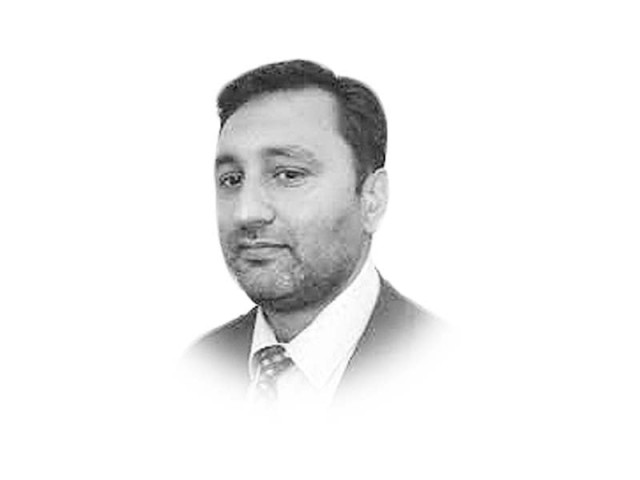Our intellectual crisis
We also need to equip our future generations for critical thinking

The writer is a public policy practitioner and researcher. He tweets @navift
Similarly, you enter any decent book store in a major city, it will be full of books about the military, wars, extremism, conspiracy theories, and autobiographies of politicians. This is the tip of the iceberg. I would call it an intellectual crisis in the country.
Politics is the most popular topic in TV shows, bookshops, drawing rooms, and even offices. We seldom steer the national conversation around questions such as: how to fix the fragmented education system? Which curriculum can better promote critical thinking in children? How can Pakistan promote scientific research? Why is there a low ranking of Pakistani universities in international lists? How to take care of the elderly population in the society? How can the state guarantee healthcare to the vulnerable segment of the society? How to foster tolerance in Pakistani society? Why do our cities rank low in international rankings? Or the reason why Pakistan’s private sector could not leave a mark internationally?
If we think that politics is the key to fixing these issues, it is yet another manifestation of the intellectual crisis in the country. We need to re-evaluate the use of airtime on TV and focus on steering the conversation to matters of substance instead of mere politics.
Pakistani society lacks bottom-up ideas and knowledge to address many of these challenges. Both demand and supply of ideas are severely constrained. Policymakers and media do not want to involve academicians, researchers, and experts on key policy debates. Instead of engaging serious academicians and genuine experts at the international level, our media and society give undue weightage to any ordinary foreigner (especially having white skin) as political analyst.
On the other hand, the domestic community of genuine intellectuals is weak and ineffective in making an impact on the discourse. Experts can be found in any nook and cranny because specialisation in a given field is not necessary to become an expert amid a “crisis of intellectuals” In any society such individuals add value by examining the consequences of prevailing policies, norms, and behaviours with the aim to challenge the dominant views and perspectives about society and human interaction. However, many of these self-proclaimed intellectuals in Pakistan belong to the elite class. Neither do they understand issues important to common people, nor do they speak the language which is fathomable by the majority of the population in the country. Encouraging participation of voices from diversified social groups is of utmost importance. A little effort on behalf of media personnel ensuring that a representative panel of experts including women, religious and ethnic minorities can render fruits manifold.
Today’s social, scientific, security, and economic challenges are so complex and intertwined that no single institution or person can claim to have an expertise on everything. This is the reason that successful nations put a lot of emphasis on creation, diffusion, and application of knowledge to resolve pressing challenges. Governments, corporations, media, military, and civil society organisations in the advanced nations give space to collective wisdom and external advice. And the academicians, researchers, and experts respond to the needs of the societies. This type of market of ideas and knowledge is absent in Pakistan. Libraries and culture of reading are absent in government offices, corporate sector, and even educational institutions. Some may argue that these are the luxuries only developed countries can enjoy. I have strong contentions against it. The market of ideas and intellect emerges “before” not “after” the development. As evidence, it would be appropriate to see the origin and contribution of The Republic of Letters. This intellectual community — spread on the both sides of the Atlantic Ocean — formed the basis of enlightenment revolution and knowledge-driven prosperity during the seventeeth and eighteenth centuries. Europe and America were not developed at that time but the intellectual community was mature enough to create the market of ideas. Pakistan is still far from such a reality even in the twenty-first century!
In the short run, we need to diversify the scope of our discussions and dialogues beyond politics. Civil, military, and corporate establishments in the country need to realise that we are living in a knowledge economy and competitiveness lies in the creation and application of new knowledge. We need to promote the culture of libraries and book-reading in all segments of the society.
In the long run, we also need to equip our future generations for critical thinking and demanding accountability not just from politicians but also thought leaders.
Published in The Express Tribune, September 2nd, 2017.
Like Opinion & Editorial on Facebook, follow @ETOpEd on Twitter to receive all updates on all our daily pieces.















COMMENTS
Comments are moderated and generally will be posted if they are on-topic and not abusive.
For more information, please see our Comments FAQ